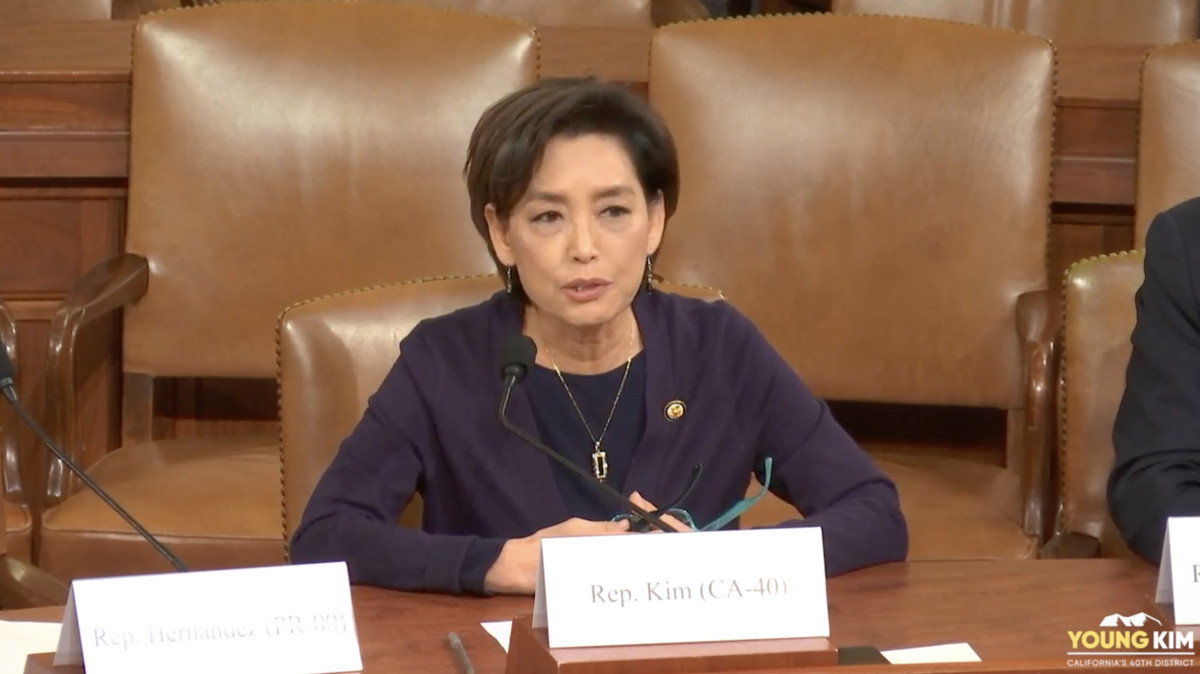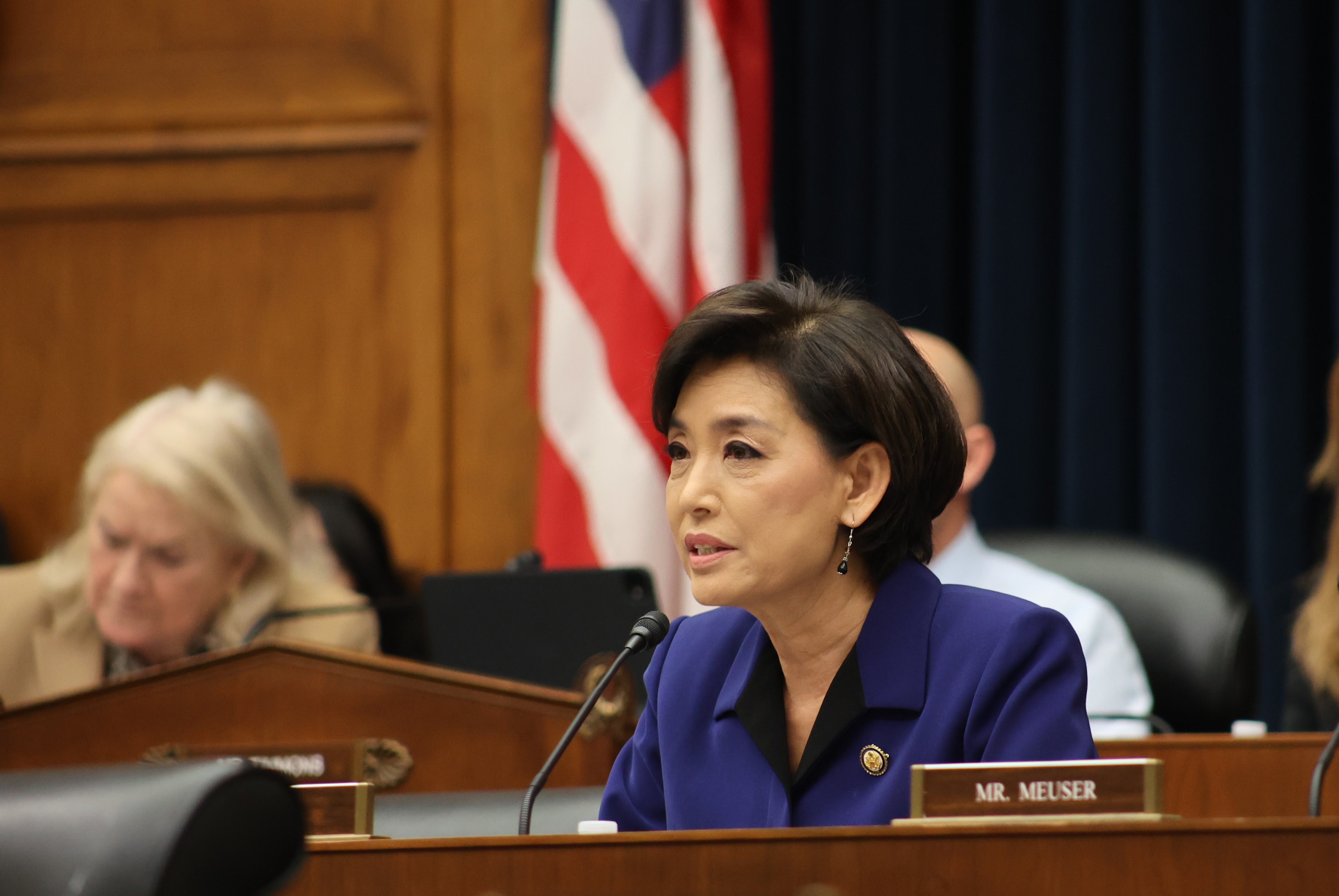Washington, DC – Today, U.S. Representative Young Kim (CA-40) questioned witnesses at a House Foreign Affairs Committee hearing on the future of the United States Agency for International Development (USAID).
Watch her full questioning HERE or read highlights below.
On Taxpayer Dollar Misuse at USAID and Need for Targeted Foreign Assistance to Protect National Security, Counter CCP
Rep. Kim: Thank you, Chairman Mast, for holding this hearing. I want to thank all of our witnesses for joining us today. The U.S. foreign assistance has long been a very powerful soft power tool to advance our American leadership by building trust with our allies, promoting democracy, stabilizing terrorism-prone regions, and providing market access for American businesses.
However, we have seen serious and credible cases of wasteful uses of American taxpayer funds abroad. For example, $2.5 million was sent through USAID to build the electric vehicle charging stations in Vietnam. How is this spending critical to U.S. national security or advancing our American interests? They are not.
Unfortunately, these cases of unproductive spending abroad undermine the many targeted, valuable, and effective foreign assistance programs that are essential to our national security.
Mr. Yoho, as you know very well, the strategic competition with China and its Belt and Road Initiative is a top priority for the East Asia and the Pacific Subcommittee that you once chaired, and I now currently chair.
Xi Jinping is watching, and he’s waiting for the chance to fill any US vacuum. Already there have been many reports of Chinese Communist Party officials signaling their willingness to replace USAID in Nepal and demining activities in Cambodia. These are just the instances that we know about. Even critics of USAID acknowledge the critical soft power value of targeted and efficient programing.
On Steps Needed if USAID is Fully Merged into State Department
Rep. Kim: So, let me ask you, if USAID is fully merged into the State Department, what specific authorities will the State Department’s Bureau of East Asia and the Pacific need to effectively implement USAID programs to directly counter CCP’s influence in the region, such as training journalists to expose illegal CCP information tactics or strengthening critical infrastructures there?
Former Rep. Ted Yoho: I think the important thing they can do is get it back online as quick as they can, and put people, authorize them to get back into the field, the implementers. The State Department might can do that, but I don’t know if they have the bandwidth or if they have the expertise and the capability. The people that were there on the ground with USAID, as Administer Natsios said, these are the people that have institutional knowledge, and they know how to do that. They’re not R’s or D’s. They’re mission driven. I think we can get some of those people back in there that are experts in their field to move America’s agenda forward of are we going to be safer or are we going to be stronger and we’re going to be more prosperous? If we do that, those countries will be too. It counters China, and if we’re not there, China will be there.
On Ensuring an Effective Waiver Process for Foreign Assistance
Rep. Kim: I’m glad that, Secretary Rubio issued waivers for life saving humanitarian assistance programs. However, I’m also hearing many concerns regarding the lack of clarity on the scope of the waivers and challenges with getting paused programs restarted. It’s hard to restart them if we completely turn the lights off, right? So, what recommendations do you have for the administration to ensure an effective waiver process?
Yoho: Again, moving forward, I think the quickest thing they can do and the most effective thing is identify the program that you want to do, and then put the people in there that know how to implement that. That could be at State. There’s people at USAID, and I know there there’s this big black eye on USAID, but I think we need to look at what they did do good. You know, it’s like a cake recipe. One drop of kerosene in a cake batter ruins the whole thing. What happened and what’s been exposed doesn’t mean the whole thing was bad. Like I said, not all aid programs are good. Not all of them are bad. Let’s take the good ones and implement them as quickly as we can so we do not cede that ground to China, Russia, anybody that doesn’t like us.
On Reforms Needed for Foreign Assistance
Rep. Kim: I’d like to ask a question to Mr. Primorac. What specific reforms can be implemented so that the current audit and review process ensures programing aligns with our U.S. national interests?
Mr. Primorac: I think transparency is probably the most important. We have various websites where we’re supposed to provide information to the American public as to what we’re doing in all these different countries, whether it’s grants.gov or foreign assistance.gov, but it’s not consolidated. Too often, actually, probably most of the time, we don’t have information as to who are the awardees, who are the sub awardees. If they’re if those are made available and not only to Congress, they should be made available to the American people.




